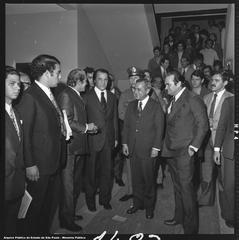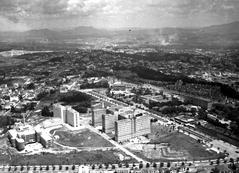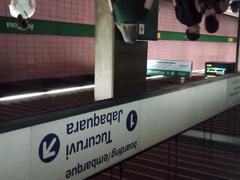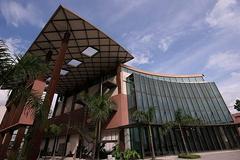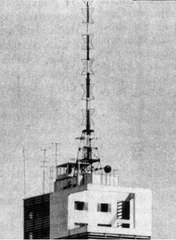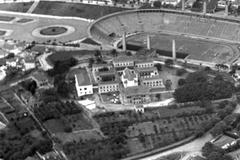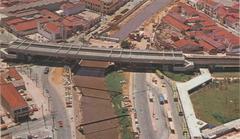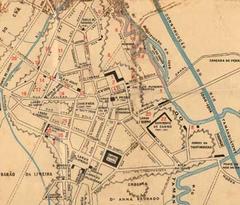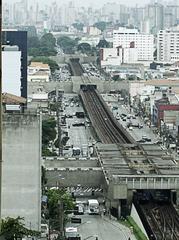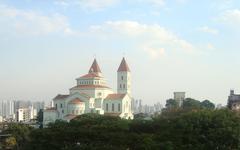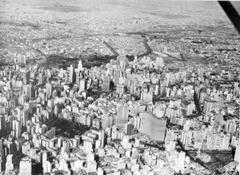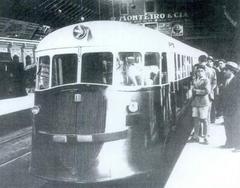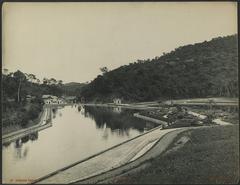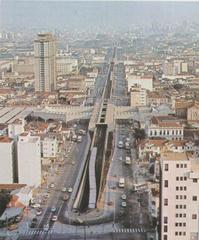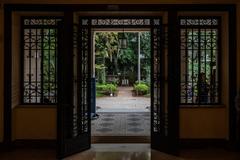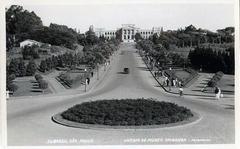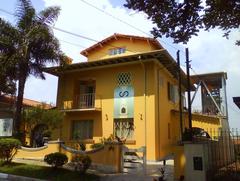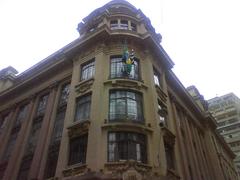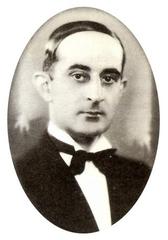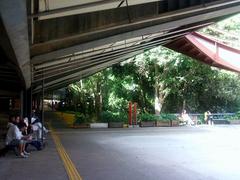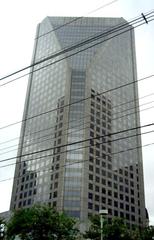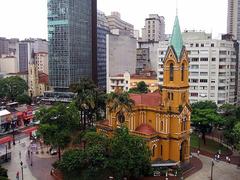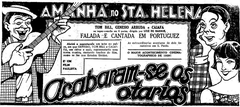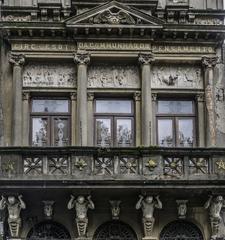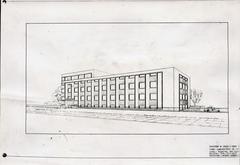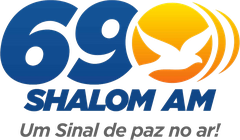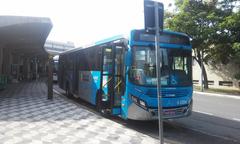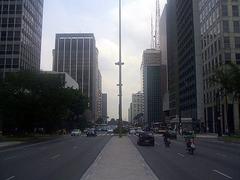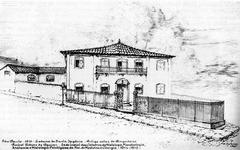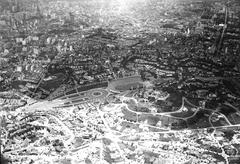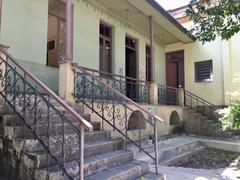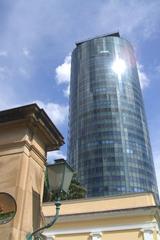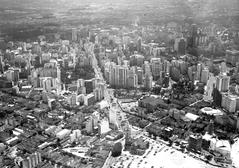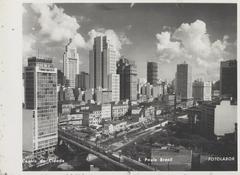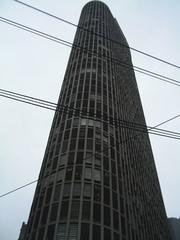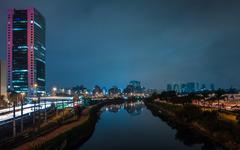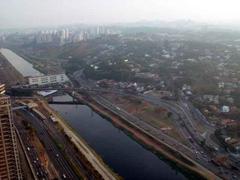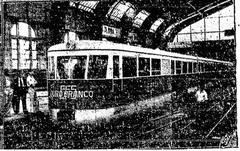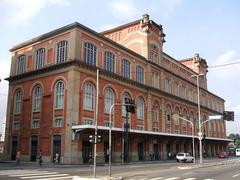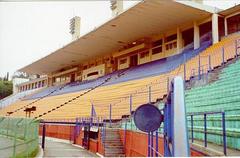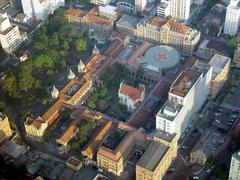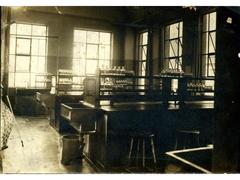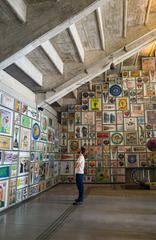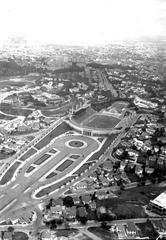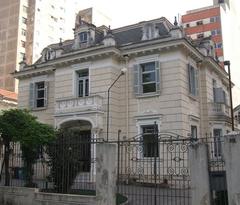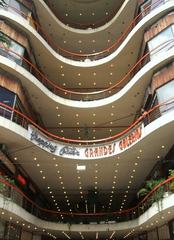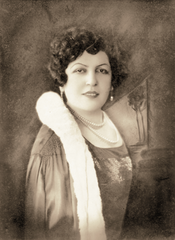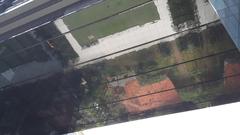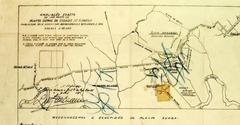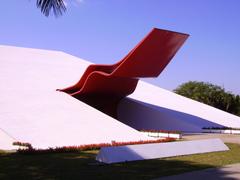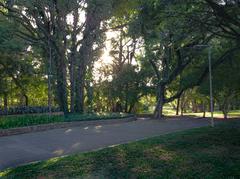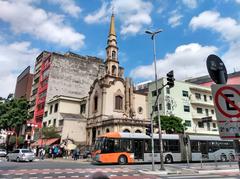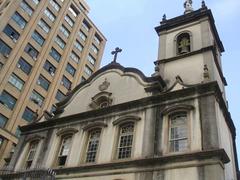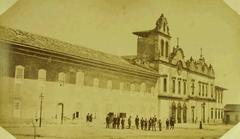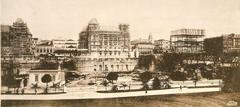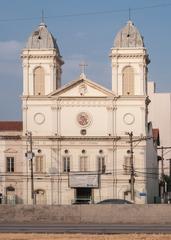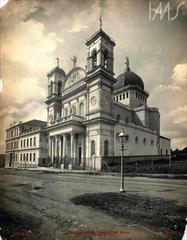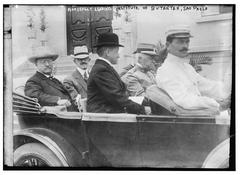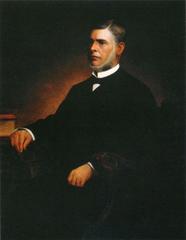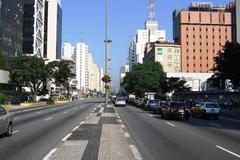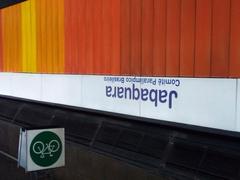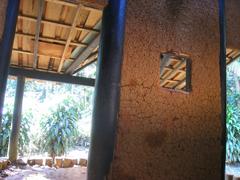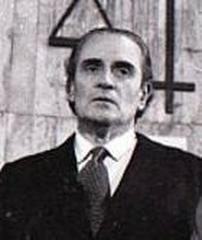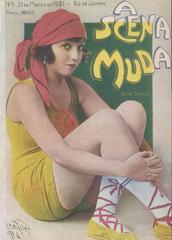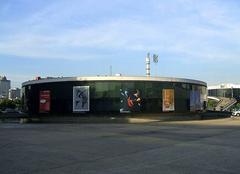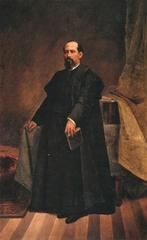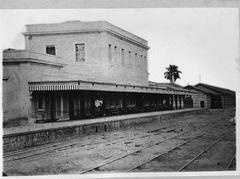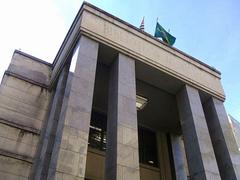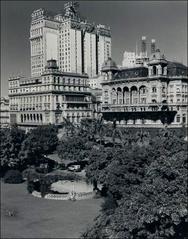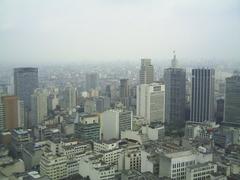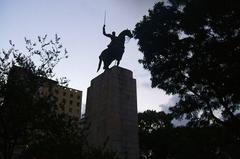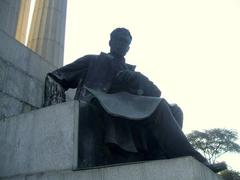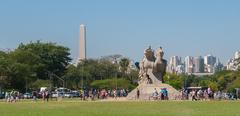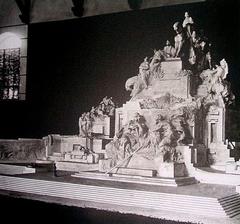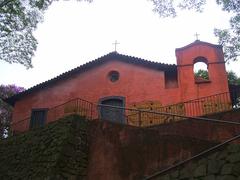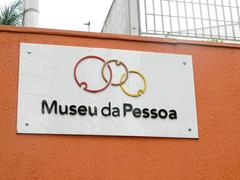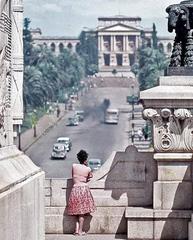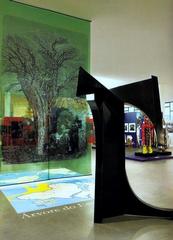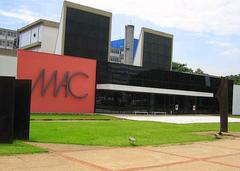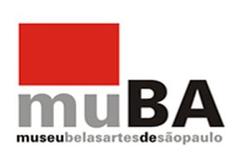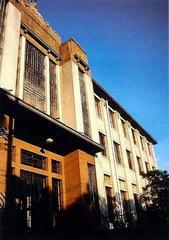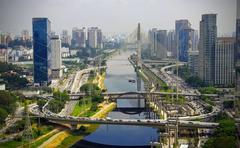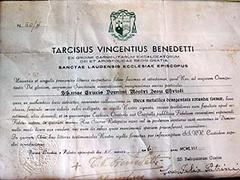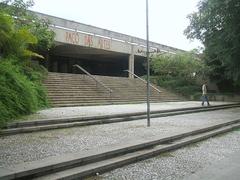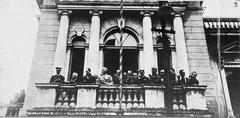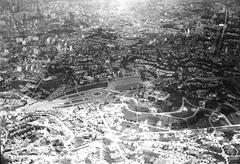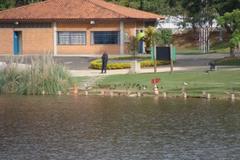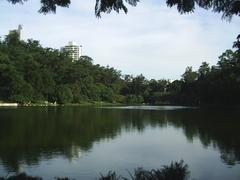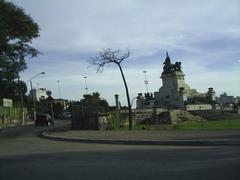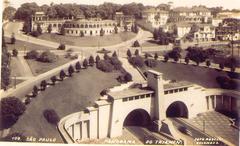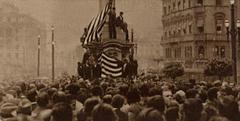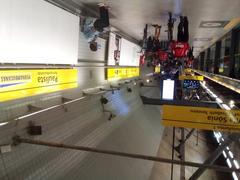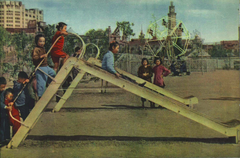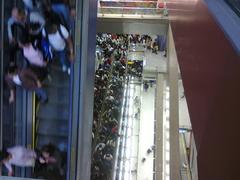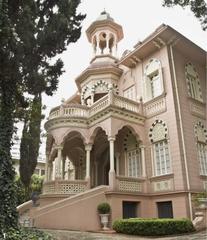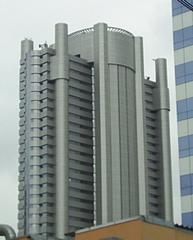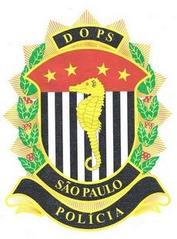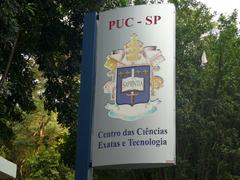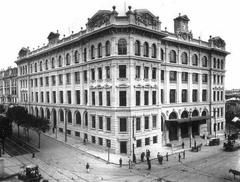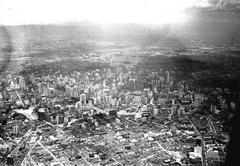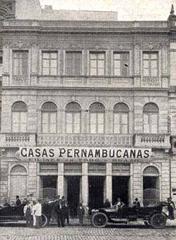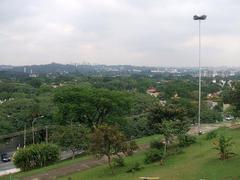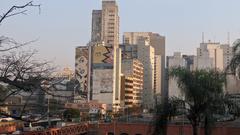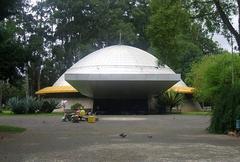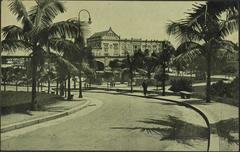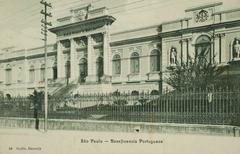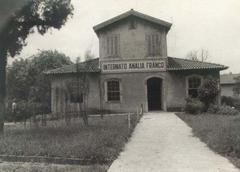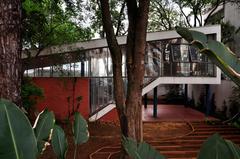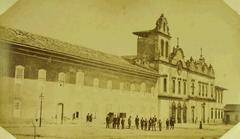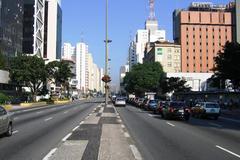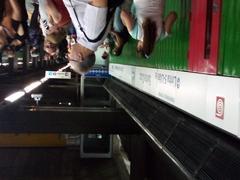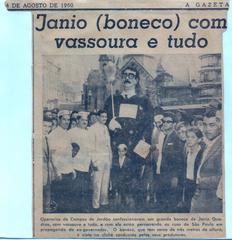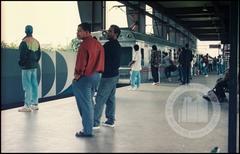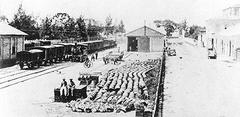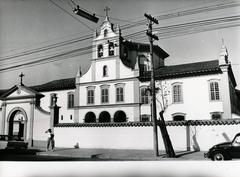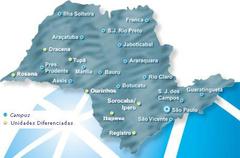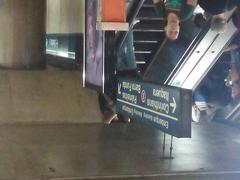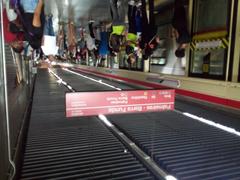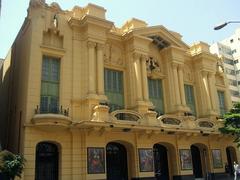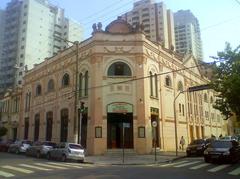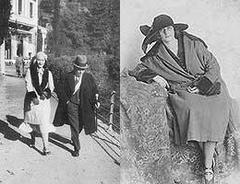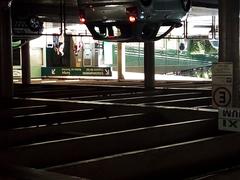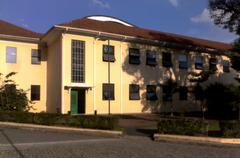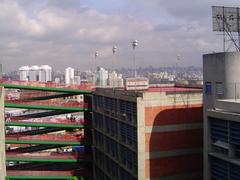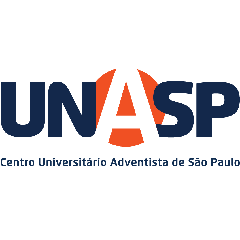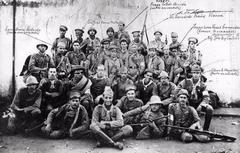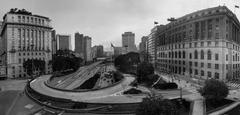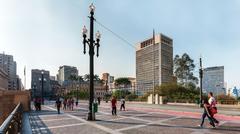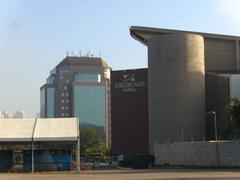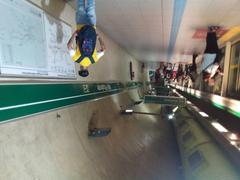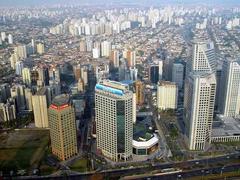
Centro Universitário Das Faculdades Metropolitanas Unidas
Centro Universitário das Faculdades Metropolitanas Unidas (FMU) Visiting Hours, Tickets, and Guide – São Paulo, Brazil
Date: 14/06/2025
Introduction to FMU and São Paulo’s Cultural Landmarks
São Paulo, Brazil’s energetic financial and cultural center, boasts an impressive collection of educational institutions and historical landmarks. Among them, the Centro Universitário das Faculdades Metropolitanas Unidas (FMU) is distinguished not only for its academic excellence but also for its role as a hub of cultural engagement and community services. Founded in 1968, FMU has grown into one of the city’s largest private universities, offering modern campuses, vibrant public programs, and accessible facilities that invite both locals and visitors to experience the heartbeat of São Paulo’s intellectual and social life (FMU Official Website).
In addition to FMU, São Paulo features prominent sites such as the Liberty Monument—an essential destination for those interested in Brazil’s historical journey—and the São Paulo Monument, which celebrates the city’s diverse heritage through art and architecture. Art enthusiasts will also find the Museu de Arte de São Paulo (MASP) unmissable, with its striking modernist design and world-class collection. This guide provides comprehensive information on visiting FMU and these key cultural sites, including hours, ticketing, accessibility, and travel tips to help you plan a memorable visit.
Table of Contents
- FMU: A Cultural and Educational Landmark
- Liberty Monument: History and Visitor Guide
- São Paulo Monument: Visitor Essentials
- Museu de Arte de São Paulo (MASP): Visiting Guide
FMU: A Cultural and Educational Landmark
Introduction
The Centro Universitário das Faculdades Metropolitanas Unidas (FMU) is recognized for blending academic achievement with a commitment to social responsibility and cultural vitality. Located across several São Paulo neighborhoods—including Vila Mariana and Santo Amaro—FMU’s campuses serve as dynamic spaces for learning, innovation, and public engagement.
History & Significance
Established in 1968, FMU has become one of São Paulo’s foremost private educational institutions. Its modern campuses are home to not only classrooms and libraries but also health clinics, a veterinary hospital, legal assistance centers, and art venues. The university’s mission centers around providing accessible education and fostering community impact through a range of outreach initiatives.
Visitor Information
Opening Hours:
- Campuses: Monday–Friday, 7:00 AM–10:00 PM; Saturday, 7:00 AM–4:00 PM
- Health Clinics & Veterinary Hospital: Weekdays, 8:00 AM–6:00 PM (check the website or call ahead for appointments and specific facility hours)
Entry & Tickets:
- Campus entry is free for visitors participating in events, exhibitions, or using community services.
- Fees and registration may apply for certain workshops or extension courses.
Getting There:
- Metro: Vila Mariana and Santo Amaro campuses are accessible via São Paulo Metro lines.
- Bus: Multiple routes serve all FMU campuses (consult FMU’s website or local transit apps).
- Parking: On-site parking available at select campuses; spaces are limited.
Accessibility:
- FMU campuses are equipped with ramps, elevators, and accessible restrooms.
Things to See and Do
- Health Clinics: Public health services and educational tours.
- Veterinary Hospital: Open to visitors by appointment, offering educational programs.
- Cultural Events: Art exhibitions, music performances, and public lectures throughout the year.
- Workshops & Courses: Extension courses and workshops for the local community.
Nearby Attractions
- Parque do Ibirapuera: Iconic city park, ideal for relaxation and recreation.
- Museu de Arte Contemporânea (MAC): Modern art museum close to the Vila Mariana campus.
FMU FAQs
Q: Can visitors attend events or lectures at FMU?
A: Yes, many events are open to the public. Refer to the FMU events calendar for details.
Q: Is there campus Wi-Fi for visitors?
A: FMU provides free Wi-Fi access for both students and visitors.
Q: Are guided tours available?
A: Tours can be arranged by contacting the administration in advance.
Q: Is photography allowed?
A: Generally permitted in public spaces. Permission may be required for clinics or special events.
Further Resources:
Liberty Monument: History and Visitor Guide
Introduction
The Liberty Monument is a landmark that pays tribute to São Paulo’s pivotal moments in Brazil’s political and cultural evolution. Its central location and historical significance make it a popular destination for both tourists and residents.
Visiting Hours & Tickets
- Hours: Tuesday–Sunday, 9:00 AM–6:00 PM (closed Mondays and public holidays)
- Admission: Free for all visitors; guided tours and workshops may require registration or a small fee (São Paulo Tourism Website).
Getting There
- Location: Near São Joaquim metro station, Av. Liberdade, 899.
- Parking: Limited spaces nearby; consider public transport for convenience.
Accessibility & Events
- Fully accessible with ramps, elevators, and accessible restrooms.
- Hosts regular cultural events, commemorations, and educational tours. Booking ahead is recommended during peak seasons.
Nearby Attractions
- Liberdade Neighborhood: Known for its Japanese heritage, markets, and cuisine.
- Ibirapuera Park & MASP: Both easily accessible for extended sightseeing.
Liberty Monument FAQs
Q: Is there an entry fee?
A: No; general admission is free.
Q: Are guided tours available?
A: Yes, regularly scheduled; book online in advance for availability.
Q: Is the monument accessible?
A: Yes, with full accessibility features.
Q: Can I take photographs?
A: Yes, but flash and tripods may be restricted.
External Links:
São Paulo Monument: Visitor Essentials
Introduction
A defining symbol of the city, the São Paulo Monument is celebrated for its artistry and as a gathering place for cultural reflection.
About the Monument
Noted for its sculptures and detailed plaques, the monument chronicles São Paulo’s major historical events and figures, serving as a source of civic pride and education (São Paulo Monument Official Website).
Hours, Tickets & Travel Tips
- Hours: Daily, 9:00 AM–6:00 PM (closed December 25 and January 1).
- Admission: Free; guided tours available for a nominal fee.
- Transport: Short walk from the nearest metro station; multiple bus and bike routes; limited on-site parking.
Accessibility & Cultural Significance
- Wheelchair accessible; ramps, elevators, and restrooms available.
- Hosts cultural events and educational programs year-round.
São Paulo Monument FAQs
Q: Is entry free?
A: General admission is free; guided tours may have a small fee.
Q: Are tours available in English/Spanish?
A: Yes, by advance booking.
Q: Is the site open on holidays?
A: Open most holidays except December 25 and January 1.
Museu de Arte de São Paulo (MASP): Visiting Guide
Introduction & History
MASP is a modernist architectural icon on Avenida Paulista, renowned for its internationally significant art collection. Since its founding in 1947, MASP has cultivated a reputation as a leading center of artistic and cultural life in Brazil.
Visiting Hours & Tickets
- Hours: Tuesday–Sunday, 10:00 AM–6:00 PM (closed Mondays and public holidays).
- Tickets: 45 BRL general admission; 22 BRL for students/seniors/children; free on Tuesdays.
- Advance Tickets: Available online to minimize wait times (MASP Official Website).
Tours, Amenities & Accessibility
- Guided tours in Portuguese, English, and Spanish.
- Fully accessible facilities with ramps, elevators, accessible restrooms, café, gift shop, and free Wi-Fi.
- Photography is permitted (no flash/tripods).
Nearby Attractions
- Avenida Paulista: Cultural and commercial heart of São Paulo.
- Ibirapuera Park: Easily reached by transit.
- Theatro Municipal: Historic venue for tours and performances.
MASP FAQs
Q: Is MASP free to visit?
A: Yes, on Tuesdays; otherwise, standard admission applies.
Q: Are there family programs?
A: Yes, with activities and workshops for all ages.
Q: How can I reach MASP?
A: Via Paulista metro station (Line 2) and multiple bus routes.
MASP Official Website
MASP Events Calendar
Summary and Final Tips
São Paulo offers a rich tapestry of educational, historical, and artistic experiences. FMU provides a living example of how academic institutions can foster community engagement and cultural exchange. The Liberty Monument and São Paulo Monument reveal the city’s historic evolution, while MASP exemplifies São Paulo’s artistic ambitions. Visitors benefit from accessible facilities, efficient public transportation, and diverse neighborhoods such as Liberdade and Vila Mariana.
For the latest updates on hours, ticketing, and events, consult each site’s official website and consider using digital resources like the Audiala app for personalized guidance and audio tours. Engaging with São Paulo’s landmarks ensures a rewarding and memorable journey into the city’s vibrant heritage (FMU Official Website, São Paulo Tourism Website, MASP Official Website, São Paulo Monument Official Website).
References and Official Links
- FMU Official Website
- São Paulo Tourism Website
- São Paulo Monument Official Website
- MASP Official Website

